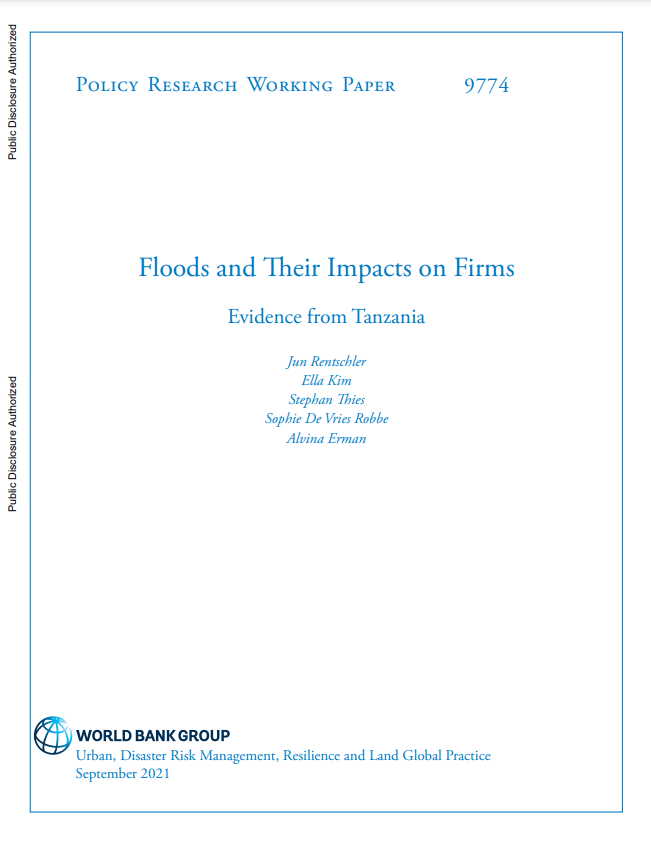This study explores how businesses in Tanzania are impacted by floods, and which strategies they use to cope and adapt. These insights are based on firm survey data collected in 2018 using a tailored questionnaire, covering a sample of more than 800 firms. To assess the impact of disasters on businesses, the study considers direct damages and indirect effects through infrastructure systems, supply chains, and workers. While direct on-site damages from flooding can be substantial, they tend to affect a relatively small share of firms. Indirect impacts of floods are more prevalent and sizable. Flood-induced infrastructure disruptions—especially electricity and transport—obstruct the operations of firms even when they are not directly located in flood zones. The effects of such disruptions are further propagated and multiplied along supply chains. The study estimates that supply chain multipliers are responsible for 30 to 50 percent of all flood-related delivery delays. To cope with these impacts, firms apply a variety of strategies. Firms mitigate supply disruptions by adjusting the size and geographical reach of their supply networks, and by adjusting inventory holdings. By investing in costly backup capacity (such as water tanks and electricity generators), firms mitigate the impact of infrastructure disruptions. The study estimates that only 13 percent of firms receive government support in the aftermath of floods.
Floods and Their Impacts on Firms: Evidence from Tanzania
September 22, 2021

